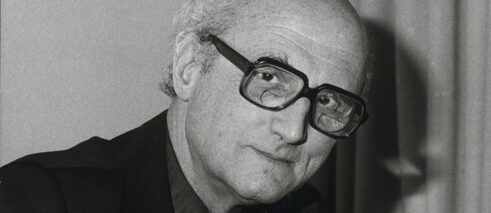Traces in Dublin
John Hennig, founder of ‘Irlandkunde’

John Hennig is a fine example of the small but influential number of refugees from Nazi Germany who enriched Irish intellectual life in the 1940s and 1950s.
Hennig was born in Leipzig on 3 March 1911, into an intellectual and devoutly Protestant family. He was baptised Paul Gottfried Johannes. From his early teenage years, he saw himself as being politically isolated because “I had been a radical pacifist since 1924”. That sense of being at odds with the rise of Nazism deepened when he married Kläre (Claire) Meyer, who came from a well-to-do Jewish family. The marriage blocked his most obvious career paths, as an academic or in the Protestant church.
Both John and Claire converted to Catholicism, and in 1939 John was offered some work teaching German in Belvedere College in Dublin. Having eked out a precarious living during the war, Hennig chose to stay in Ireland and became an Irish citizen in 1945 and a member of the Royal Irish Academy in 1948. He and his family left Ireland for Switzerland in 1956, but he continued to write and research on Irish subjects, especially church history. He is regarded as the founder of Irlandkunde (Irish-German studies) – a term, aptly, that he coined himself.
Visitor Information:
Royal Irish Academy
19 Dawson Street
Dublin 2
IRELAND
+353 (0)1 676 2570
webmaster@ria.ie
„German Traces in Ireland“ is a project of the Goethe-Institut Irland.